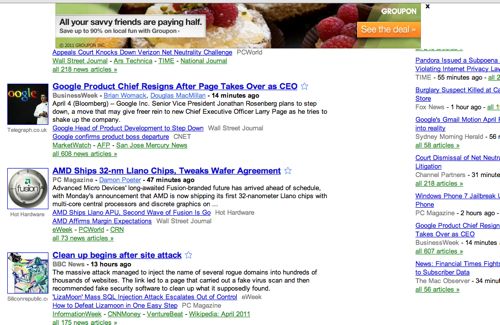Hotspot Shield snags 1 million users overnight, proves privacy can be monetized
Political unrest quite literally turned Hotspot Shield into an international success story overnight.
During the Egyptian uprisings against deposed president Hosni Mubarak in January and February, AnchorFree's Hotspot Shield software went from 100,000 users in Egypt to over a million over a single 24 hour period. Egyptians found they could use the desktop VPN freeware to obscure their IP addresses and access locally censored services such as Facebook and Twitter.
Now, a growing number of Chinese users are doing the same.
"We started seeing a big growth in our Chinese userbase when Google pulled out of China last year," AnchorFree co-founder David Gorodyansky recently told Betanews. "But as of last week, Gmail is blocked in China, so a lot of users are now downloading Hotspot Shield to get to Gmail there as well. We've got more than a million and a half Chinese users at this point."
Hotspot Shield's reach has grown to over 9 million users in 100 countries, who get online some 40 million times a month to view approximately 2 billion pages.
"About one-third of the world today lives in a region with a censored Internet," Gorodyansky said. "That means that out of the two billion people online, about 600 million don't have access to many basic services, like Google search and YouTube, or social networking like Facebook, or news like the Wall Street Journal. A lot of people who live in these regions find that they want to get a solution to freely surf the Web."
And the key word here is FREE. AnchorFree's Hotspot Shield costs nothing to download, and there is no subscription fee. The only catch is that your browser has an advertising bar whenever the software is turned on.

"The premise of starting AnchorFree was that we'd like to see consumers in control of their privacy on the Web, and make it ad-supported. We want privacy and advertising to coexist together, and a lot of our patents are around this subject," Gorodyansky told Betanews. "When a user turns on Hotspot Shield, a new identity is assigned to them. Basically the user's IP address is thrown out, and an AnchorFree IP is assigned to them.
"Based on normal user targeting, advertisers know he's looking for cars or furniture or real estate, they just don't know who the user is. The ability to target relevant ads based on user interest and the contextual nature of sites visited remains the same. This means session to session, advertisements will change based on the user's behavior," Gorodyansky said.
It is in this way that Hotspot Shield is deceptively clever. Users can turn on their ad blockers of choice to block the in-page ads and surf anonymously, but they're still served pseudo-targeted ads in the advertising bar that Hotspot Shield creates. It is essentially a region-free advertising proxy.
For users who don't want ads of any sort, AnchorFree is currently beta testing a subscription version that will be packed into the Webroot Antivirus security suite. For $60 a month, users get the Webroot security package with hotspot shield with no ads and ostensibly faster performance.
The goal for the venture-funded Silicon Valley company is to get 100 million users in the fastest way possible.
I asked Gorodyansky if that meant he's hoping for more political revolutions.
"Our total potential market is 1.5 billion. That's 600 million in all the regions under censorship, about 800 million of the world's antivirus users who don't have VPN software, and about 200 million expats looking to access region-locked content from home. I don't think any of the unrest or censorship has to continue to happen for us to grow. We just need to get 8% of that 1.5 billion to be aware of the product."
